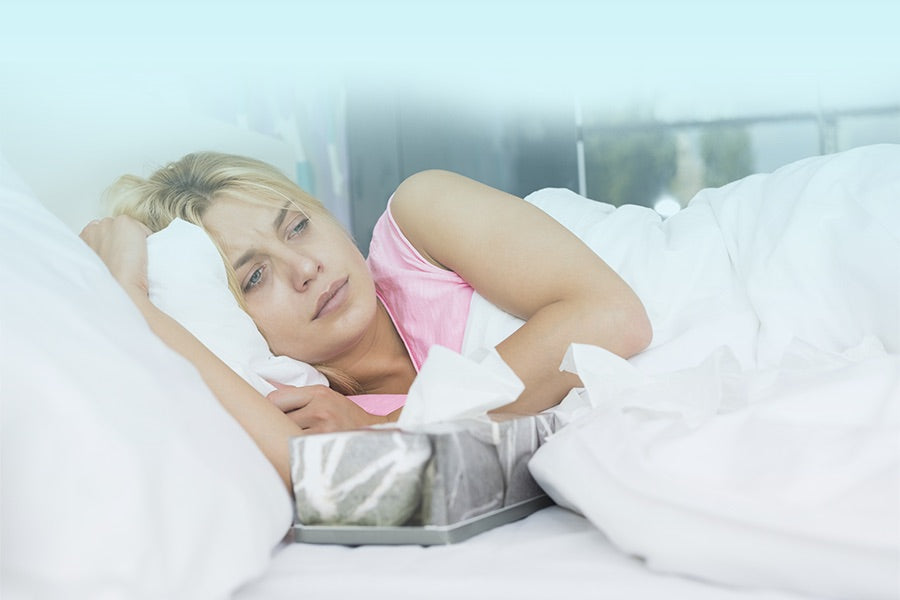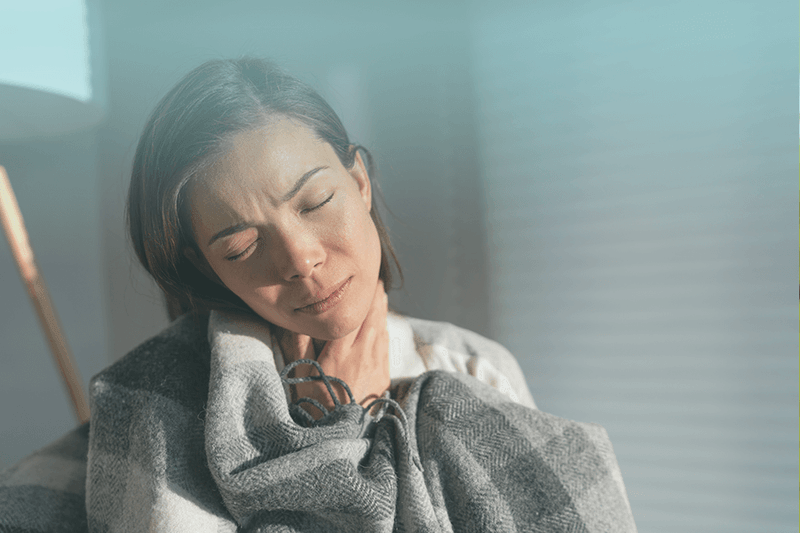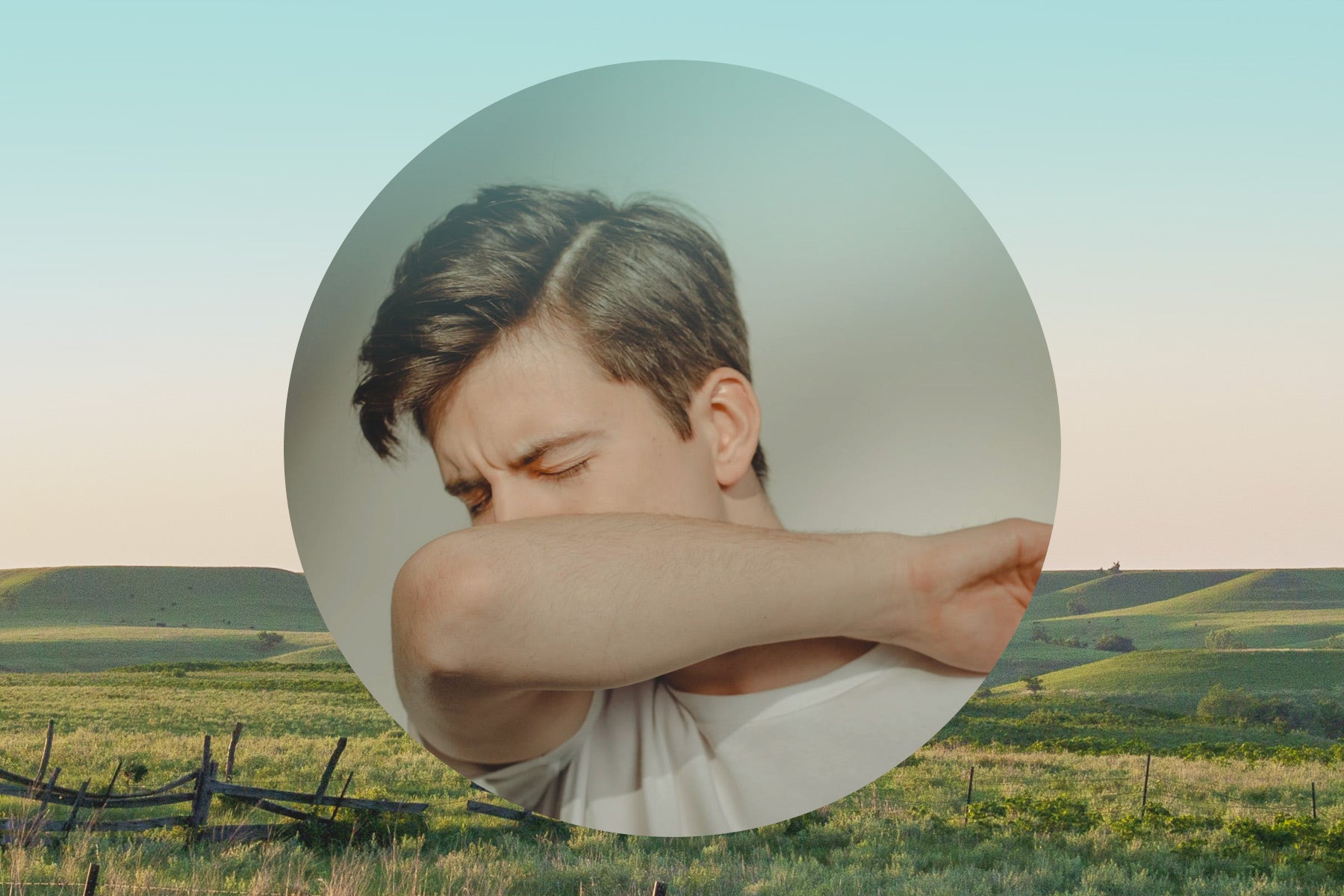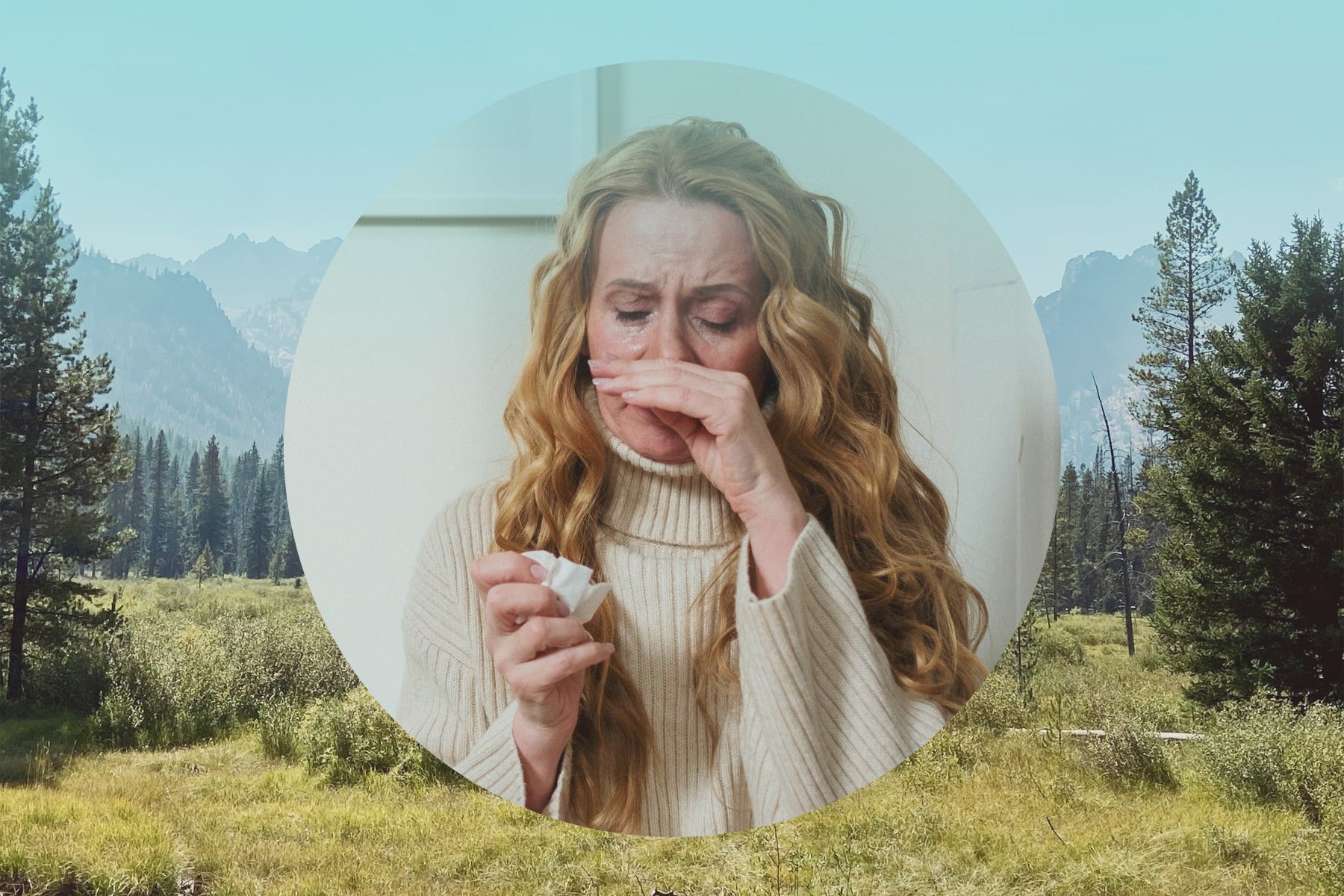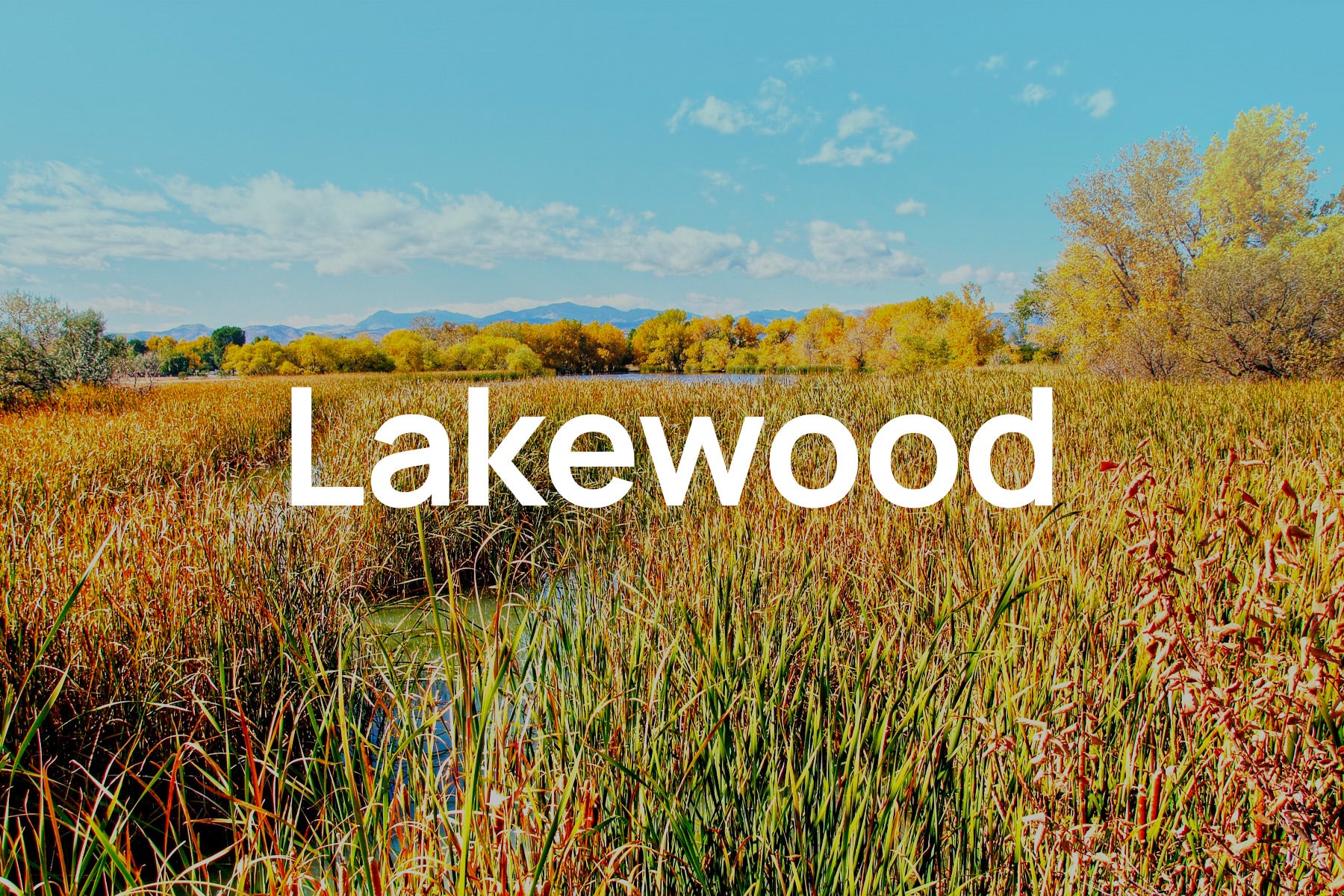
Managing Pollen Allergies in Lakewood, Colorado
A community in the South Platte River watershed, Lakewood, CO, is well-known for its many lakes, reservoirs, and creeks. Unfortunately, this suburb of Denver is also a place where allergens fester. Dealing with pollen allergies? Learn how to manage them today.
How Bad Are Pollen Allergies in Lakewood?
Whether you’re a longtime resident or a first-time visitor, the state of Colorado is a place unlike any other. Filled with stunning geographic marvels, bubbling with eclectic energy, and marked by distinct climatology, “Colorful Colorado” is truly a sight to behold.
Lakewood, CO, is no different. From Fox Hollow golf course to Green Mountain’s William F. Hayden Park, you’ll never run out of reasons to hit the outdoors. And when you’re not spending time at the over 110 parks and nearly 250 miles of hiking and biking trails, there are plenty of indoor spaces to cozy up for some fine food and drinks.
And then come the allergies.
Many people in Lakewood and Colorado at large suffer from seasonal allergies. While allergic reactions and symptoms vary widely between individuals, there are certain predictable periods where pollen worsens. If you’re susceptible to pollen or even indoor allergens like mold and dander, it’s important to take precautions.

Understanding Your Lakewood Pollen Allergies
An established suburb and community in western Denver, Lakewood, CO, presents many of the same issues to residents and visitors as does the greater metro area. Of course, all allergies are different. Due to the precise nature of symptoms and reactions, triggers can be varied and complicated.
According to the National Center for Health Statistics (NCHS), over 100 million people across the country suffer from allergies of some kind every year. As recently as 2021, more than 80 million people in the country received a diagnosis of seasonal allergic rhinitis, commonly called “hay fever.”
Seasonal Allergies run the spectrum!
This means that people across the nation are suffering from allergies, depending on the season. Some people only need a brief exposure to circulating weed, grass, or tree pollen, and their symptoms take off. Others can withstand constant exposure with minimal issues.
From the minor nuisance of a scratchy throat or stuffy nose to energy-sapping, life-disrupting exhaustion, the effects of Lakewood’s pollen allergies cross a wide spectrum. Given varying immune sensitivities, seasonal trends, and overall climate change, it can be difficult to know where you stand.
Pollen Allergies in Lakewood vs. The Nation
Oftentimes, when we think of places ‘good’ and ‘bad’ for allergies, we think of rankings. We hear of certain ratings and designations based on pollen counts, medical visits, and access to quality healthcare. In some cases, one city or area may rank badly one year only to vastly improve the next, and vice versa.
Of course, not all cities and towns are included. Because the municipality of Lakewood only has a population of ~156,000, and because it is recognized as a suburb of greater Denver, the city rarely gets its own rankings. Rather, we must look at Denver’s rankings and extrapolate. One way to do this is through the ratings of the Asthma and Allergy Foundation of America (AAFA).
How Does Lakewood, Colorado, Compare?
The AAFA published an annual 2023 Allergy Capitals report ranking the 100 largest metro areas in the country for their allergy challenges. The report factors numerous variables into three summed categories. These categories include pollen counts, availability of immunologists, and allergy medication use.
Because Lakewood is essentially a part of Denver, we can safely assume Denver’s issues will largely correspond with the City of Lakewood’s. Overall, Denver ranks 68th and is designated “Average” across the three major categories. According to the AAFA, the city’s tree and weed pollen counts rank worse than its grass pollen counts.
In other words, if you’re more susceptible to tree and/or weed pollen, you may have worse allergies in the winter, spring, and fall than you would during the summer. Of course, this is far from a sure thing. Always consult a healthcare provider for a personalized diagnosis and top-notch treatment, and never take anything for granted.
Denver and Lakewood: A Pollen Season Comparison
Nestled in the Colorado Piedmont and dissected by various gulches and creeks, Lakewood, CO, is a city aptly named. Whether it’s the Soda Lakes, Cottonwood Lake, Smith Reservoir, or other meandering tributaries, the area is renowned for its ~750 acres of water.
But even all that water can leave you out to dry.
Various species of plants, from Tamarisk trees to Canarygrass and Wingscale weed, all grow lushly and fervently in the area. This can spell serious problems for seasonal pollen sufferers.
Lakewood’s interesting geographical location can also make seasonal fluctuations more pronounced. Situated along the Great Plains and Front Range, the municipality is also home to the nearly 7,000-foot tall Green Mountain. Near the center of the city, this grassy mesa summit can play a crucial role when it comes to winds, precipitation, and moisture. And with that, seasonal allergies.
Due to Lakewood’s unique topography, it’s no wonder the city’s weather patterns and pollen seasons differ slightly from Denver’s at large.
How Weather Affects Pollen Allergies in Lakewood
Depending on the metrics you use, Lakewood, CO, averages roughly an inch more rain a year than overall Denver, right around 18” yearly. Lakewood also sees approximately 4 more inches of snowfall per year than The Mile High City. Both cities’ annual totals dwarf the U.S. average, which is less than 28 inches per year.
Generally speaking, Lakewood’s temperatures are just slightly cooler than Denver’s year-round. Denver also sees several more hot days over 90°F than Lakewood. This should come as no surprise given that Lakewood’s climate is classified as cold and semi-arid.
A Colorado Climate Ripe for Allergies?
If you're wondering what this has to do with seasonal allergies, just consider the role of precipitation and temperature. With warmer trends leading to longer allergy seasons and greater pollen counts, all of us have to be on our toes.
The precipitation can also be problematic, as rainfall can actually increase plant growth and pollen counts in the future. Although showers may remove pollen grains from the air, they can also break up larger clumps, helping them to disperse. Moreover, melting snow can lead to mold and organic debris where other allergens fester.
When it’s not wet, and the air is dry and windy, all of these lovely pollen grains can carry far and wide. Bermuda grass, Juniper trees, Pigweed - it doesn’t matter. Whether pollinating trees from February to spring, grass in the summer, or weed pollen through October, the wind is not your friend! Especially if you have asthma…
Asthma and Allergies in Lakewood, CO
With over 25 million people in the country affected by asthma, it’s easy to see why pollen allergies can be so problematic. After all, allergic reactions and symptoms are known to exacerbate problems with breathing. If you’re susceptible to allergies and have asthma, you need to be extra careful in Lakewood.
Part of getting a handle on these issues is by understanding the key differences.
Is It Allergies, Asthma, or Both?
Generally speaking, allergens - a type of antigen - are any substance that triggers an allergic reaction. These pesky intruders can get into our bodies through various channels, whether our mouths, nose, or skin. You can swallow them, touch them, breathe them, or even deliver them subcutaneously (i.e., injection).
Now, in an ideal world, our immune systems wouldn’t react to allergens, because most environmental allergens such as pollen are relatively harmless. Unfortunately, we don’t live in an ideal world. Many people’s bodies take up defense against these allergens, triggering the symptoms we know too well.
Whether you feel fatigued, have a cough, start sneezing, or experience any other symptom, this reaction is due to chemical and physical changes in your body. The same can be said for asthma.
Pollen Asthma vs Pollen Allergies in Lakewood
Asthma is not only caused by strenuous exercise. While this is commonly called exercise-induced asthma, so-called allergic asthma is also problematic. Some individuals may experience asthma attacks and symptoms on humid days or when the air quality is poor. Others experience asthma attacks under stressful conditions.
Allergic asthma, like pollen allergies, is caused strictly by exposure to allergens. While pollen allergies only refer to, well, allergies to pollen, allergic asthma can be triggered by allergies to almost anything. It could be pollen, indoor dust mites, dander, mold, latex, food, or insect bites and stings. One way to narrow the list is through simple at-home testing.
Although allergic asthma and allergy symptoms overlap, allergic asthma typically causes:
- Coughing
- Wheezing
- Difficulty Breathing
- Chest Tightness
- Difficulty Sleeping
You should also note issues related to common allergies, such as sneezing, itchy skin and eyes, hives, and runny nose. All of these symptoms can coincide, making it difficult to know what’s causing what. As always, speak to a healthcare provider for a proper diagnosis and treatment. With the help of a medical expert, you can chart an action plan, take preventative steps, and use effective treatments when needed.
How to Manage Your Pollen Allergies in Lakewood
According to the Asthma and Allergy Foundation of America (AAFA), the first thing you should do is take precautionary steps. After all, why wait till you’re already having issues when you can potentially prevent the issue?
When preparing for allergy season - whether it’s the dead of winter or the peak of summer - always observe your local forecasts. Just remember, pollen counts are estimates. These estimates from The American Academy of Allergy, Asthma & Immunology’s (AAAAI) National Allergy Bureau are not a guarantee.
You may have grass pollen vulnerabilities that are severe, even if the forecast tells you the levels are low. Likewise, high levels of another pollen type do not necessarily mean you’ll have issues. It all depends on your sensitivities, so take precautions and never assume you’ll be completely fine.
The following measures can help:
- Use Medication Preventatively - Most people wait till they have pollen allergies and then run to the drugstore. According to the AAFA, the smart thing to do is start your medicine before pollen season even begins. Antihistamines, for example, work best by preventing the chemical release from ever happening. Allergy drops may also help prevent and alleviate symptoms.
- Use Certified Air Cleaners - You can find AC units and air filters with asthma & allergy friendly® labels. This means these devices are specifically designed to limit airborne allergens like pollen. Similarly, you can use a high-efficiency particulate absorbing (HEPA) filter. These units are great for all kinds of allergens, including dust and dander.
- Shower Every Day - Most people do this anyway, but it’s worth repeating. Consider showering particularly before bedtime so that you don’t track pollen into your bedding. If you spend a lot of time outdoors, change your clothes and wear hats and sunglasses to prevent pollen from getting all over you. When you wash your bedding, ensure it’s with hot, soapy water. Doing this once a week is a great way to prevent pollen from accumulating.
- Reduce Exposure - This one is obvious, but it goes further than you may think. While staying indoors on high-count days with the windows and doors closed is always a good idea, have you considered your company? Your favorite furry friend can track a lot of allergens, so be sure to bathe or wipe off your pets when they come inside. Doing this regularly can help greatly reduce your pollen allergies in Lakewood.
If you find yourself still struggling with seasonal pollen allergies, don’t stress. Many people live their best lives, taking necessary precautions, and still experience nagging symptoms. Remember, every immune system is different. Not to mention, the weather is constantly shifting, and climate changes are becoming increasingly pronounced.
If you’re still suffering from pollen allergies in Lakewood, CO, you may be in luck…
Stop Suffering With Pollen Allergies in Lakewood!
Started in Denver, the online medicine practice of Quello has seen the full spectrum of allergy symptoms. That’s why we offer potential solutions for life.
With our daily, under-the-tongue allergy drops, you can easily and painlessly treat your symptoms without ever leaving your home. Our drops are formulated based on your unique blood sample, providing your immune system with the tailored treatment it needs.
To deliver a sample, simply order a FREE in-home test kit. Follow the easy instructions, mail the sample back, and be on your way to allergy relief!
Note: The research supporting allergy drop therapy is not conclusive. Allergy drops do not work for everyone, so speak to your healthcare provider first and foremost about a proper diagnosis and treatment.

FAQ
When Do Pollen Allergies in Lakewood Start & End?
Allergy season in Lakewood, Colorado, varies based on unique factors, such as seasonal weather, climate changes, and immune susceptibilities. Typically, you can expect trees to pollinate in late February through spring, grass pollen to circulate from late spring through summer, and weeds to peak in September before weakening in late October.
What Are The Main Symptoms of Pollen Allergies?
Everyone is different. As regional trends and greenhouse gasses affect our global atmosphere, we experience longer, more potent allergy seasons. The most common seasonal allergy symptoms include runny nose, stuffy nose, itchy/watery eyes, sneezing, cough, scratchy throat, and skin irritation. Other severe and chronic symptoms do occur. Consider an at-home test to determine the cause of your reactions.
Do At-Home Tests Work for Pollen Allergies?
While at-home allergy test kits do not replace comprehensive in-clinic tests, they can be extremely useful. At Quello, our in-home test kit contains everything you need to provide a small, simple blood sample. From there, we can link specific environmental allergens to your symptoms and formulate personalized allergy drops for your needs.
Are Allergy Drops Safe and Effective?
Although some research indicates that sublingual immunotherapy is safe and effective, not all studies agree. Allergy drops may prove useful for some and ineffective for others. Patients typically experience very mild side effects, if any, with symptom improvement beginning in several weeks.
Are you considering giving allergy drops a try? Reach out today and we’ll address all your questions and concerns!
Overcome your allergies at home with our doctor-led therapy.
Get started with our free allergy test kitGet Started with no test needed.
Overcome your allergies at home with our doctor-led therapy.
Get started with our free allergy test kitGet Started with no test needed.

